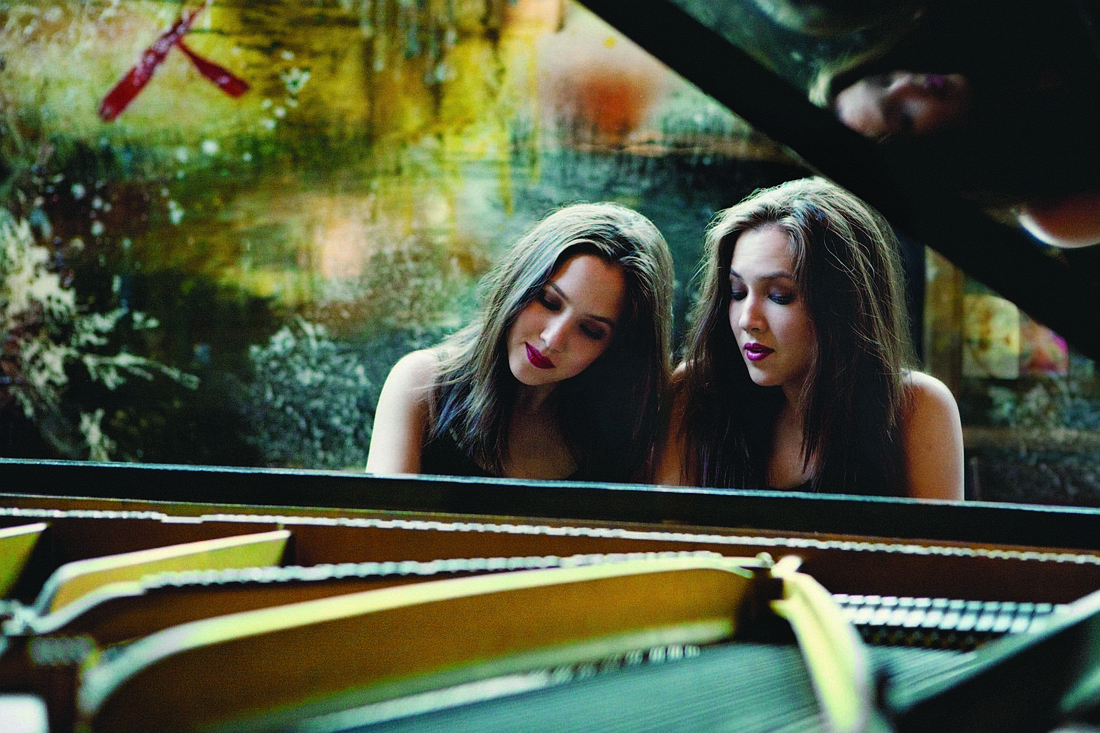- April 26, 2024
-
-
Loading

Loading

In spite of some very strong competition, the Sarasota Orchestra turned out to be the star of its own show at last Sunday afternoon’s concert at Van Wezel Performing Arts Hall.
It was formidable competition indeed, in the persons of Christina and Michelle Naughton, duo-pianists who happen to be identical twins, giving us a virtually flawless performance of Poulenc’s Concerto for Two Pianos in D Minor.
Duo-pianists in general and identical twins in particular, seem to have a subliminal form of communication, but these two outstanding players have a unity of touch, phrasing, and musicality verging on ESP.
The Two Piano Concerto is quintessential Poulenc, written in his unique humorous musical voice that can range from sounding like a chase scene from a movie cartoon to salon-perfect Mozart — with a bit of Poulenc tongue-in-cheek humor added. Then he mixes it together with music hall harmonies and rhythms. Only Poulenc can make this work without sounding banal and derivative.
The Naughton sisters are outstanding in their field, playing with excellent technique, phrasing and nuance. Their movements at the keyboards are understated and graceful, almost ballet-like in their elegance.
The encore of Lecuona’s “Malagueña,” a pianistic tour de force, was so brilliantly played it was as if it was done by one performer.
However, it was in the second half of the concert that the orchestra and guest conductor Ward Stare pulled out all the stops, giving us two outstanding performances.
Every composer somehow has his/her own musical voice and signature, whether it be in the contour of the melody, contrast in time signatures, or a particular sound in the orchestration — or a combination of all three. Each composer on this program spoke his music with a unique voice, and the “Valses nobles et sentimentales,” which opened the second half, told us “This can be no one but Ravel.” This set of eight brief waltzes epitomize Ravel: rich, full orchestra sound; smoky-sounding muted strings; grand crescendos followed by striking pianissimo sounds we can barely hear; and always a floating and singing melodic line.
Stare and the Sarasota musicians captured the subtleties of these little waltz vignettes beautifully, moving from grand caprices to barely audible musical gems as only Ravel could provide.
Closing the afternoon’s concert was Richard Strauss’ 1945 Orchestral Suite from “Der Rosenkavalier,” probably his most tuneful and beloved opera. The tone poems of Richard Strauss are an orchestral challenge but his operatic scores are every bit as demanding of the players in the pit as they are the singers on the stage.
In the “Rosenkavalier Suite,” which should be subtitled “A Concerto for Orchestra,” the orchestra is given every opportunity — and challenge — to bring to life the wonderful writing of this great score. And did they ever.
Richard Strauss is one of the Romantic composers with a capital “R,” whom many say “wrote everything to excess,” but in “Rosenkavalier” all the lush melody, musical extravagance and orchestral brilliance made for 22 minutes of sheer loveliness that enveloped the audience in a great musical comforter of sound. (Expressing the music of Strauss in prose sometimes requires the same excess of words.)
Solo passages abound, and all were played to perfection by the players, who really seemed inspired in this final performance of the Masterworks 2 series. To name every one would take more than the allotted space. Conductor Ward Stare gave good reason for his impressive list of musical credits with his inspired conducting.
The concert opened with a suite from Mozart’s “Thamos, King of Egypt,” which was well played, but certainly left in the deep dark shade by the brilliance of the rest of the concert.
Missing this concert was to miss one of Sarasota’s greatest orchestral highlights in a long time.